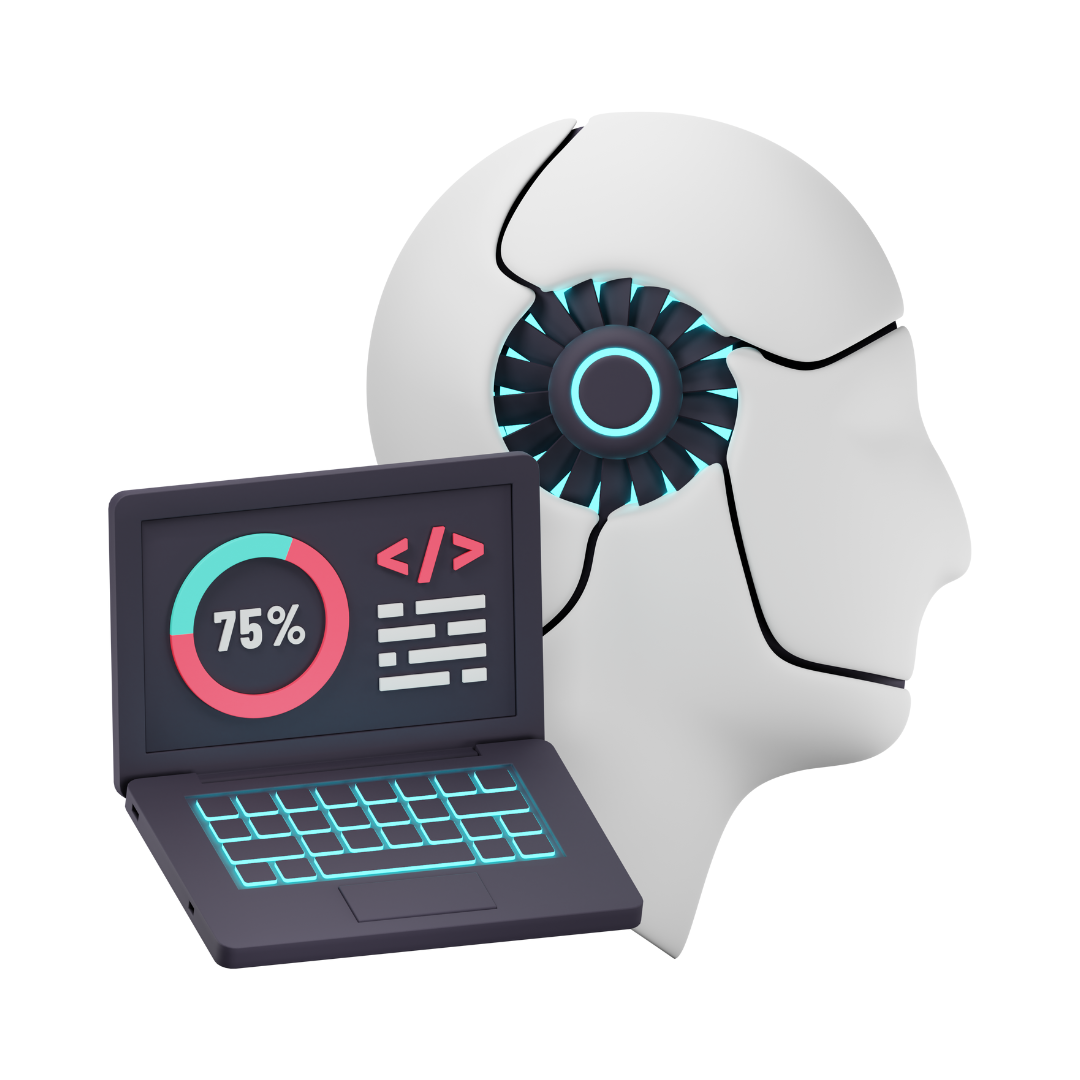Do My Computational Thinking Assignment | Online Python Helper
Welcome to our Computational Thinking Assignment Help & tutoring service, where we provide expert assistance to students seeking guidance in programming assignments, homework & projects related to computational thinking.
Our team of Python Programmers comprises highly skilled Ivy League professionals with 5+ years of experience in computational thinking. They possess comprehensive knowledge of algorithms, data analysis, and problem-solving techniques. We understand that each student's requirements are unique. Our programmers provide tailored codes, reports & 1-on-1 Tuition Classes to ensure that students grasp the concepts effectively. Our experts break down complex topics into simple, relatable examples, making computational thinking accessible to all.
With our Computational Thinking Assignment Help, students can enhance their problem-solving skills, develop a computational mindset, and excel in their academic pursuits. Trust us to be your partner in mastering the art of computational thinking.
Why Computational Thinking Assignments are Challenging?
Computational Thinking assignments can present challenges due to the nature of the problem-solving approach and its applications in various disciplines. Here are some reasons why students may find Computational Thinking assignments challenging:
- Abstract Concepts: Computational Thinking involves abstract concepts like decomposition, pattern recognition, and algorithm design. Grasping these concepts and using them to tackle real-world issues can pose difficulties for students who are just starting to explore the subject.
- Complex Problem Solving: Computational Thinking assignments often require tackling complex problems that may not have straightforward solutions. Students may struggle to break down these problems into smaller, manageable tasks and develop effective algorithms.
- Algorithm Development: Designing algorithms is a crucial aspect of Computational Thinking, and it demands precision and creativity. Students may find it challenging to create algorithms that are both efficient and accurate.
- Interdisciplinary Nature: Computational Thinking is not limited to computer science; it is applicable across various disciplines. Students may encounter assignments that require applying Computational Thinking in unfamiliar contexts, leading to additional challenges.
- Programming Skills: While Computational Thinking doesn't necessarily involve programming, some assignments may require coding to implement algorithms. Students with limited programming experience may find these tasks more difficult.
- Critical Thinking: Computational Thinking emphasizes critical thinking and problem-solving skills. Some students may struggle to think analytically and logically, making it challenging to approach assignments effectively.
What is Computational Thinking?
Computational Thinking is a problem-solving method that entails dissecting intricate problems into smaller, more manageable components. These components are then addressed systematically using principles drawn from computer science. This approach is considered a crucial cognitive skill that extends beyond mere programming and finds utility in a wide range of domains and scenarios.
At its core, Computational Thinking involves four key concepts:
- Decomposition: This involves breaking a problem into smaller, more manageable sub-problems. By breaking down complex tasks into simpler steps, it becomes easier to address each component effectively.
- Pattern Recognition: Identifying common patterns and similarities in different problems allows for the development of general solutions that can be applied to multiple scenarios. This recognition helps in creating efficient and reusable algorithms.
- Abstraction: Focusing on the essential details while ignoring irrelevant information simplifies problem-solving. Abstraction allows for the creation of models and representations that capture the essence of a problem without getting lost in unnecessary complexities.
- Algorithm Design: Designing step-by-step procedures or algorithms to solve specific problems is a crucial aspect of Computational Thinking. Developing clear, logical, and efficient algorithms ensures systematic problem-solving.
What Are the Types of Computational Thinking?
Computational Thinking is a highly adaptable problem-solving approach that encompasses a variety of thinking patterns and strategies. It employs different techniques tailored to address specific types of problems. Let's explore some key types of Computational Thinking:
- Algorithmic Thinking: At the core of computer science and programming, Algorithmic Thinking involves breaking down complex problems into precise and logical steps. The focus lies on designing efficient algorithms to tackle specific tasks.
- Abstraction: Abstraction simplifies intricate systems by concentrating on essential details while disregarding unnecessary complexities. This technique allows individuals to grasp problems at a higher level, facilitating pattern identification and solution design.
- Pattern Recognition: Vital in data analysis, machine learning, and artificial intelligence, Pattern Recognition entails identifying recurring structures or trends within data. It enables algorithms to learn from patterns and make predictions.
- Decomposition: Decomposition involves breaking down a complex problem into more manageable sub-problems. By addressing each component separately, individuals can solve the overall task more effectively.
- Logical Thinking: Logical Thinking entails reasoning and drawing conclusions based on provided information. It involves systematic and organized thought processes, leading to accurate and reliable solutions.
- Parallel Thinking: Emphasizing creativity, Parallel Thinking encourages considering multiple perspectives or solutions simultaneously. It allows individuals to explore various possibilities before choosing the most suitable approach.
- Simulation: Widely used in engineering, finance, and scientific research, Simulation creates models or simulations of real-world scenarios to analyze their behavior and make predictions.
- Evaluation and Testing: Computational Thinking emphasizes the significance of evaluating and testing solutions. This ensures that proposed algorithms or strategies are robust and align with the desired objectives.
Applications of Computational Thinking
Computational Thinking has diverse applications across various fields, enabling individuals to approach complex problems and find innovative solutions. Some prominent applications of Computational Thinking are as follows:
- Computer Programming: In the realm of computer programming, Computational Thinking plays a central role. It allows programmers to analyze problems, design algorithms, and write efficient code to create software applications, websites, and computer programs.
- Data Analysis and Big Data: Computational Thinking is instrumental in handling with considerable quantities of information inside the era of Big Data. It aids in processing and decoding data, identifying patterns, and extracting precious insights from large datasets.
- Artificial Intelligence and Machine Learning: Computational Thinking is essential within the development of AI and system mastering fashions. It entails formulating algorithms that permit machines to examine from records, apprehend styles, and make intelligent decisions.
- Robotics and Automation: Computational Thinking is crucial in the layout and control of robots and automated systems. It permits the advent of algorithms that manual robots to carry out specific duties successfully and autonomously.
- Problem Solving in STEM Fields: Computational Thinking is extensively used in science, technology, engineering, and mathematics (STEM) fields. It helps scientists and engineers analyze complicated problems, simulate experiments, and optimize solutions.
- Digital Art and Design: Computational Thinking has programs in virtual artwork and design, in which it aids in growing complicated and interactive visualizations, animations, and graphics.
- Business Analytics: Computational Thinking is valuable in enterprise analytics, where it assists in analyzing market developments, predicting consumer behavior, and optimizing business techniques.
Computational Thinking Assignment Help | Homework Help
Our Computational Thinking Assignment Help Service is crafted to provide thorough assistance to students aiming to build a solid understanding of Computational Thinking. We delve into various crucial topics necessary for grasping the principles and practical uses of this field. Some of the primary areas we focus on include:
- Problem Decomposition: This entails the process of dissecting intricate problems into smaller, more manageable segments and formulating solutions for each part. It equips students with a systematic approach to tackling challenges and finding effective solutions.
- Algorithm Design: Students learn how to create step-by-step procedures and algorithms to efficiently address specific problems. This skill is crucial in various domains, from computer science to engineering and beyond.
- Pattern Recognition: Our service explores techniques for identifying patterns, regularities, and trends in data. This enables students to make informed decisions and derive valuable insights from data sets.
- Abstraction: Understanding the concept of abstraction allows students to focus on relevant details while filtering out unnecessary complexities in problem-solving. It aids in developing a clear and concise thought process.
- Algorithm Optimization: Students learn methods to enhance algorithm efficiency and reduce computational resource usage. This optimization is crucial for enhancing the efficiency of algorithms in real-world applications.
- Logical Reasoning: Fostering robust logical thinking and reasoning abilities constitutes a fundamental component of Computational Thinking. It enables students to construct sound arguments and approach problem-solving in a structured manner.
- Data Analysis: Our service covers data collection, organization, and analysis using computational tools. Students gain the ability to draw meaningful insights from data, an invaluable skill in various industries.
- Simulation and Modeling: Students acquire the skills to develop simulations and models for analyzing real-world phenomena and forecasting results. These skills find utility in domains such as physics, economics, and social sciences.
- Automation and Robotics: Our service explores how Computational Thinking is harnessed in the realm of automation and robotics. This equips students to design intelligent systems capable of independent task execution.
- Artificial Intelligence: Students receive insights into the fundamentals of AI and its practical applications, encompassing areas like machine learning and natural language processing. AI is a rapidly expanding field with extensive cross-industry potential.
Why choose our Computational Thinking Assignment Help Service?
Choosing our Computational Thinking Assignment Help Service can be a game-changer for students seeking academic excellence and a deep understanding of this critical field. Here are the compelling reasons why you should choose our service:
- Expert Programmers: Our Computational Thinking Programmers provide personalized assistance to students, helping them grasp complex concepts and excel in their assignments.
- Comprehensive Coverage: We cover a wide array of topics in Computational Thinking, from problem decomposition to artificial intelligence, ensuring that students receive a holistic understanding of the subject.
- Original Content: Plagiarism is strictly prohibited in our service. We deliver 100% original and AI-free content, tailored to meet the specific requirements of each student's assignment.
- Timely Delivery: Meeting deadlines is crucial in academic settings. With our help, students can submit their assignments on time, reducing the stress of last-minute submissions.
- Affordable Pricing: We offer our services at competitive and affordable prices, without compromising on the quality of assistance provided.
Get Computational Thinking Assignment Help, Homework Help & 1-on-1 Tuition Classes now.






 Certified Python Experts
Certified Python Experts
 4.7/5.0
4.7/5.0 4.3/5.0
4.3/5.0 4.5/5.0
4.5/5.0





